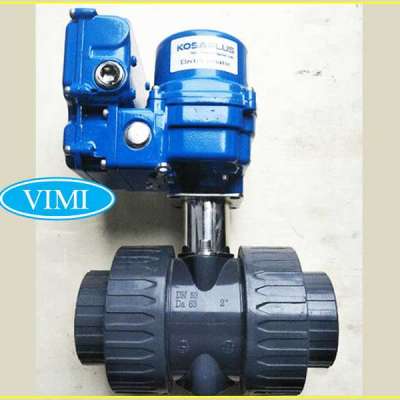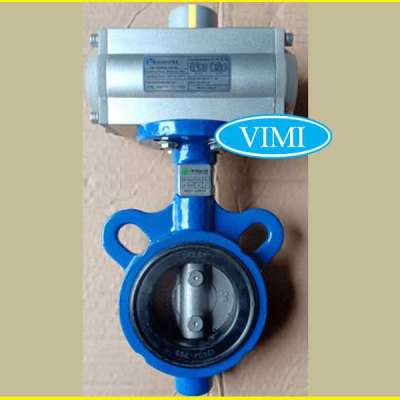Streamlining Healthcare Operations with a Comprehensive Hospital Management System:
In today's fast-paced healthcare environment, hospital administrators and healthcare providers are increasingly turning to advanced technology to streamline operations, reduce errors, and improve patient care. A Hospital Management System (HMS) serves as an integrated software solution designed to manage various aspects of hospital administration, from patient registration to billing. By automating essential tasks and facilitating real-time communication between departments, HMS systems are transforming healthcare delivery, making it more efficient, accurate, and patient-centric.
Key Features of a Hospital Management System
A robust HMS incorporates several essential modules that work seamlessly together to ensure smooth operation across all hospital functions. These features include:
1. Patient Management
Effective patient management lies at the heart of any hospital’s operations. A customized HMS centralizes patient information, including registration details, medical history, and treatment records. This data can be easily accessed by healthcare professionals, enabling them to provide personalized care plans. With automated workflows for inpatient and outpatient management, hospitals can streamline patient intake, reduce waiting times, and ensure the availability of accurate medical records.
2. Appointment and Scheduling
Appointment scheduling can be a challenge in busy hospitals with high patient volumes. A sophisticated HMS simplifies appointment management by offering an intuitive scheduling system for consultations, diagnostic tests, and procedures. Patients benefit from features such as online booking, appointment reminders, and real-time updates. This not only reduces administrative burdens but also minimizes overbooking and scheduling conflicts.
3. Billing and Claims Management
Managing billing and insurance claims is a critical part of hospital operations. An HMS with an integrated billing and claims module automates the entire financial process, ensuring accurate invoicing, insurance verification, and streamlined reimbursement. By reducing errors and accelerating claims processing, this module enhances the financial health of the hospital and ensures faster payments.
4. Lab and Diagnostics Management
Hospitals rely heavily on diagnostic tests to support clinical decision-making. An HMS can integrate lab management systems to handle tasks such as sample tracking, test orders, and result reporting. This integration reduces turnaround times, minimizes errors, and ensures that test results are accurately recorded and readily available for doctors and patients.
5. Inventory and Supply Chain Management
Efficient inventory management is essential for maintaining a hospital's day-to-day operations. With an HMS, hospitals can track medical supplies, manage stock levels, and automate ordering processes. The system can also monitor the use of materials in real time, preventing stockouts and waste while optimizing resource allocation. This helps in maintaining cost-effective operations while ensuring critical supplies are always available.
6. Operation Theatre Management
Managing surgical procedures involves numerous tasks, from scheduling surgeries to allocating resources and staff. A specialized HMS module for operation theatre management coordinates these activities, ensuring optimal utilization of theatre space and equipment. Real-time updates on surgery progress and resource availability help improve communication between the surgical team, leading to enhanced efficiency and patient safety.
Benefits of Implementing a Hospital Management System:
The adoption of an HMS can provide numerous advantages for hospitals:
Increased Efficiency: By automating routine tasks, such as patient registration, billing, and scheduling, hospitals can reduce manual efforts, cut down on administrative overhead, and focus on delivering better care.
Reduced Errors: HMS systems minimize the risk of human errors, whether in patient records, medication prescriptions, or billing, thereby enhancing patient safety and accuracy in operations.
Cost Savings: With streamlined processes, hospitals can reduce operational costs, including administrative overhead, inventory wastage, and resource mismanagement.
Improved Decision-Making: Access to real-time data and comprehensive patient records enables healthcare professionals to make informed decisions quickly, leading to better outcomes for patients.
Enhanced Patient Satisfaction: Faster, more efficient services, such as easy appointment booking, quicker test results, and transparent billing, contribute to a better patient experience.
Conclusion:
A comprehensive Hospital Management System is more than just a software solution; it’s an essential tool that drives hospital efficiency, enhances patient care, and supports financial stability. By integrating various departments and automating key processes, an HMS optimizes every aspect of healthcare management, from patient intake to billing and inventory control. For hospitals looking to improve operations and provide exceptional care, investing in a customized HMS is a crucial step toward achieving these goals.
Source: https://www.osplabs.com/hospit....al-management-system
Synes godt om
Kommentar
Del















